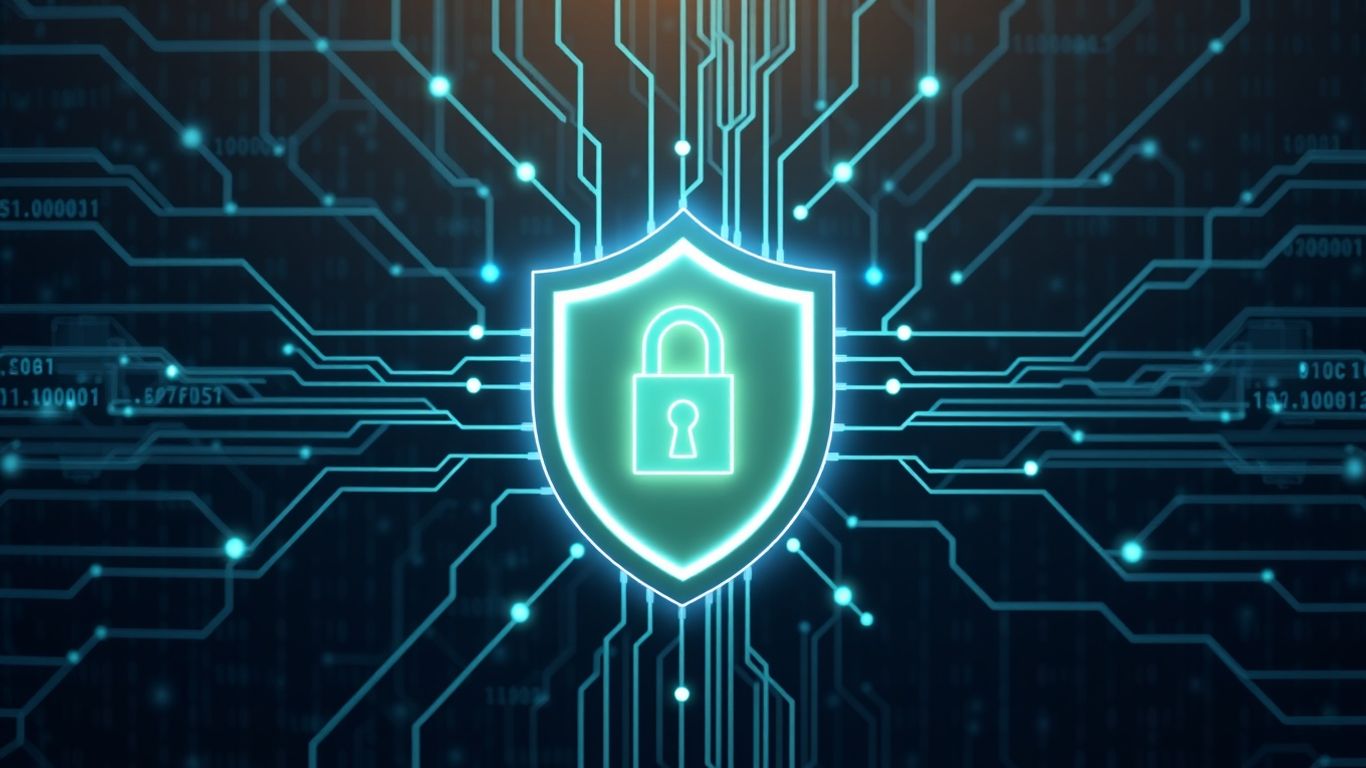[ newsletter ]
Stay ahead of Web3 threats—subscribe to our newsletter for the latest in blockchain security insights and updates.
Thank you! Your submission has been received!
Oops! Something went wrong. Please try again.
Choosing the right cyber security audit service in 2025? Learn about key features, capabilities, and compliance needs to select the best partner for your business.





Picking the right cyber security audit service in 2025 feels like a big deal, doesn't it? With all the tech stuff going on, it's easy to get lost. You want to make sure your business is safe from online threats, but where do you even start? This guide is here to help you figure out what you need and how to find a service that actually gets the job done. We'll break down what to look for, so you don't end up with a report that's more confusing than helpful.
Before you even think about picking a cybersecurity audit service, you really need to get a handle on what you need from one. It's not a one-size-fits-all deal, and trying to force a generic audit onto your specific situation is just a waste of time and money. Think of it like going to the doctor; you wouldn't ask for a general check-up if you had a specific pain, right? You'd tell them where it hurts.
So, what are you actually trying to achieve with this audit? Are you worried about hackers getting into your customer database? Or maybe you're just trying to make sure you're following all those government rules about data privacy. You need to be clear about your goals. This will help you decide what parts of your business the audit should look at. Should it be your network, your website, how your employees handle data, or everything? Setting clear boundaries, or the 'scope,' means the auditors can focus on what matters most to you.
Now, who's going to do the audit? You have two main choices here. You can have your own internal IT team do it, or you can hire an outside company. Your internal team knows your systems inside and out, which can be a big plus. They know the quirks and the history. However, they might also be a bit too close to the situation, maybe overlooking things because 'that's just how we've always done it.' An external auditor, on the other hand, brings a fresh, unbiased look. They've seen a lot of different companies and know the latest tricks attackers are using. They don't have any personal stake in the current setup. Often, the best approach is a mix of both – an internal review followed by an external validation.
An internal audit can highlight operational blind spots, while an external audit provides an objective assessment of your security posture against industry best practices and emerging threats.
How often should you get audited? Well, it depends. If you're a small startup with a simple setup and not much sensitive data, maybe once a year is fine. But if you're a big company handling lots of customer information, or if you're in a field with strict rules (like healthcare or finance), you'll probably need to do it more often. Think about it: if you're constantly changing your systems, adding new software, or if there's been a security scare, that's a good time for an audit. For some regulations, like PCI compliance, you might be required to audit quarterly. It's about balancing the risk you're willing to take with the cost and effort of an audit.
When you're looking for a company to check up on your digital defenses, it's not just about finding someone who knows the lingo. You need a service that brings real value, not just a report filled with technical terms you can't decipher. Think of it like hiring a mechanic; you want someone who can fix your car and explain what went wrong in a way you understand, not just hand you a bill with a bunch of part numbers.
First off, you want to know that the people doing the audit actually know their stuff. This means looking for certifications like CISSP or CISA, and ideally, they should have spent a good few years doing this, especially in your line of business. An auditor who's worked with other companies in your industry will likely spot risks specific to your setup much faster. They've seen it before, they know the common pitfalls, and they can translate that knowledge into practical advice. It’s like asking a seasoned chef for cooking tips versus a beginner – the results are usually quite different. Having this kind of background means they can provide a more thorough review and help you fix issues without wasting time and money.
A solid audit service doesn't just wing it. They have a clear plan, a methodology, that they follow. This usually involves using established frameworks, like the NIST Cybersecurity Framework or ISO 27001, as a guide. These frameworks help them look at different areas of your security systematically, such as how you handle risks, what you do when something goes wrong, and who gets access to what. But a good service also knows that every business is unique, so they should be able to tweak their approach to fit your specific needs. It’s about having a reliable roadmap but also the flexibility to take detours if necessary.
Beyond just having a checklist, a top-tier audit service uses modern tools. Basic scanners are okay for a quick look, but you need more. Look for companies that use advanced platforms, sometimes called PTaaS (Penetration Testing as a Service). These platforms can automate some testing, simulate how real attackers might try to break in, and help pinpoint vulnerabilities. They also use tools that assess your overall security posture, giving you data to make smart decisions. This is how you get a clearer picture of where you stand and what needs attention. A good cybersecurity audit is built on more than just manual checks; it's a blend of human smarts and smart technology.
The goal isn't just to find problems, but to understand the real impact those problems could have on your business operations and reputation. This requires a service that can connect the dots between technical flaws and business risks.

When you're looking at cybersecurity audit services, you want to know they're actually going to find the weak spots. It's not just about running a scanner and calling it a day. A good service will dig deep, looking for everything from outdated software to misconfigured cloud settings. They should be able to tell you not just what the problem is, but why it's a problem for your specific business. This means they need to understand your systems and how they connect. They should also be able to rank these issues based on how likely they are to be exploited and how bad the damage would be. This helps you figure out what to fix first.
Getting a giant report filled with technical terms you don't understand isn't very helpful, is it? The best audit services will translate all that complex information into plain English. They'll explain the risks in terms of business impact, not just technical jargon. You should expect clear, prioritized recommendations that tell you exactly what needs to be done. Regular updates during the audit process are also a good sign. You want to know what's happening without having to chase them down. Think of it like getting a progress report on a construction project – you want to know if they're on track and what they've found.
A truly effective audit report doesn't just list problems; it provides a clear roadmap for improvement, making it easy for your team to understand and act upon the findings. This clarity is key to turning audit results into tangible security enhancements.
Finding problems is only half the battle. What happens after the audit report lands on your desk? A top-tier service won't just hand over a list and disappear. They should offer guidance on how to fix the issues they found. This could be anything from suggesting specific tools to helping you plan out the fixes. Even better, they might offer to come back and check that the fixes actually worked. This verification step is super important because it confirms that the vulnerabilities are truly gone and your systems are more secure. It's like getting a second opinion after a doctor's visit to make sure the treatment is effective.
Here's what to look for in remediation support:

So, you've got a handle on your security needs and you're looking at audit services. But what about all those rules and regulations? It's not just about being secure; it's about being legally secure, especially if you're in a field like finance, healthcare, or anything that deals with sensitive customer data. This is where understanding how a cybersecurity audit fits into the bigger compliance picture becomes really important.
Think of your audit findings as puzzle pieces. Your compliance requirements, like GDPR, HIPAA, or PCI DSS, are the picture on the box. A good audit service doesn't just hand you a list of problems; they help you see how those problems connect to specific rules you have to follow. They can show you exactly which security weakness might lead to a violation of a particular regulation. This mapping is key to knowing where to focus your efforts first.
Getting compliant once is one thing, but keeping it up year after year? That's the real challenge. An audit service can help you set up the right processes and controls to not only pass an audit but to stay on the right side of regulations all the time. This means things like regular check-ins, updating policies, and making sure your team knows what they're doing. It’s about building security into your day-to-day operations, not just for audit season. They can help you meet compliance requirements like GDPR, HIPAA, or SOC 2.
Staying compliant isn't a one-time event; it's an ongoing commitment. Regular audits and proactive adjustments are necessary to adapt to evolving threats and regulatory landscapes.
It's easy to mix these two up, but they're not quite the same. A cybersecurity audit looks at your overall security health – finding weaknesses and suggesting ways to fix them to reduce your risk of an attack. A compliance audit, on the other hand, specifically checks if you're following the rules set by a particular regulation. While they overlap a lot, the focus is different.
So, you've figured out what you need from a cybersecurity audit. Great! Now comes the part where you actually pick someone to do it. This isn't like picking a pizza topping; it's a big decision that can seriously impact your business's safety. You want a partner, not just a vendor, someone who gets your business and can help you actually fix things, not just point them out.
When you're looking at potential audit firms, check out their background. Do they have people with certifications like CISSP or CISA? That's a good sign they know their stuff. More importantly, have they worked with businesses like yours before? An auditor who understands the specific risks in, say, the healthcare industry, will be way more effective than someone who's only ever audited tech startups. Look for a track record. Ask for references, and see if they have experience with CERT-In's 2025 guidelines if that's relevant to your operations.
Don't just take their word for it; ask about the tools they use. Are they just running basic scans, or are they employing advanced platforms that can simulate real attacks? A good audit service will use a mix of automated tools and skilled human testers. They should be able to explain how their technology helps find vulnerabilities that others might miss. It's also about how they translate what their tools find. Can they explain complex technical issues in a way that makes sense to your team, so you know what needs fixing and why?
This ties back to experience, but it's worth its own point. Every industry has its own unique set of challenges and regulations. A financial services company has different security needs than a retail business. A good audit partner will have a deep understanding of your industry's specific threats and compliance requirements. They can tailor their audit approach to focus on the areas that matter most to you, making the whole process more efficient and the results more relevant. They should be able to map audit findings directly to regulatory mandates relevant to your sector.
Choosing the right audit partner means finding a team that not only identifies weaknesses but also provides clear, actionable steps to strengthen your defenses. It's about building a more resilient business, not just getting a report.
Here's a quick look at what to consider:
Look, nobody wants to get a report filled with confusing tech talk. A good cybersecurity audit service doesn't just find problems; it explains them in plain English. They should break down complex technical issues into clear, understandable terms so you know exactly what's going on. This means you can actually make smart decisions about fixing things, rather than just staring at a list of acronyms. The goal is to turn a technical headache into a clear plan of action.
A thorough audit looks at your whole security picture, not just one small piece. It checks your networks, your software, how your employees handle data, and even your physical security. When you have a solid audit process, it builds trust. Your team knows you're serious about security, and if you have investors or partners, they'll feel more confident too. It shows you're managing risks properly.
Think of an audit like a regular check-up for your business's digital health. It's not just about finding what's broken right now, but about spotting potential issues before they become big problems. This proactive approach helps you avoid costly data breaches, downtime, and reputational damage. It makes your business tougher and better prepared to bounce back if something bad does happen. It’s about staying ahead of the game.
Here’s a quick look at what a good audit process should cover:
A well-executed cybersecurity audit isn't just a compliance checkbox. It's a strategic tool that helps you understand your organization's actual security standing, identify where you're most vulnerable, and prioritize efforts to strengthen your defenses. It’s about making informed choices to protect your business's future.
So, picking the right cybersecurity audit service for your business in 2025 really comes down to knowing what you need. It's not just about finding someone to scan your systems; it's about finding a partner who gets your specific situation. Think about what matters most – is it nailing compliance rules, finding every single weak spot, or getting clear advice on how to fix things fast? Look for companies that explain things clearly, show you what they're doing, and actually help you sort out the problems they find. A good audit isn't just a report; it's a step towards making your business safer. Don't put it off – getting this right now can save you a lot of headaches later.
Think of a cybersecurity audit like a check-up for your business's digital safety. It's a thorough review to find weak spots in your computer systems and online defenses. The goal is to spot any problems before bad guys can exploit them, making sure your important information stays safe.
In today's world, online threats are everywhere. An audit helps you understand where your company might be vulnerable to hackers or data loss. It's like having a security guard inspect your building to make sure all doors and windows are locked, preventing break-ins and keeping everything secure.
It's a good idea to have an audit at least once a year. However, if your business handles a lot of sensitive customer information or operates in industries with strict rules, you might need them more often, maybe every six months or even quarterly. Also, if you make big changes to your computer systems, it's smart to get an audit right after.
An internal audit is done by people within your own company, like your IT team. They know your systems really well. An external audit is done by an outside company that specializes in security. They bring a fresh, objective view and often have special tools and knowledge that your internal team might not have.
The audit report will clearly list all the security problems found, sort them by how serious they are, and suggest ways to fix them. It should be easy to understand, even if you're not a tech expert. The best reports also explain why each problem is a risk and how to make your systems safer.
Yes, absolutely! Many audits are designed to check if your security practices meet specific industry rules, like those for handling health information (HIPAA) or credit card payments (PCI DSS). An audit can show you exactly where you need to improve to follow these rules and avoid fines.


